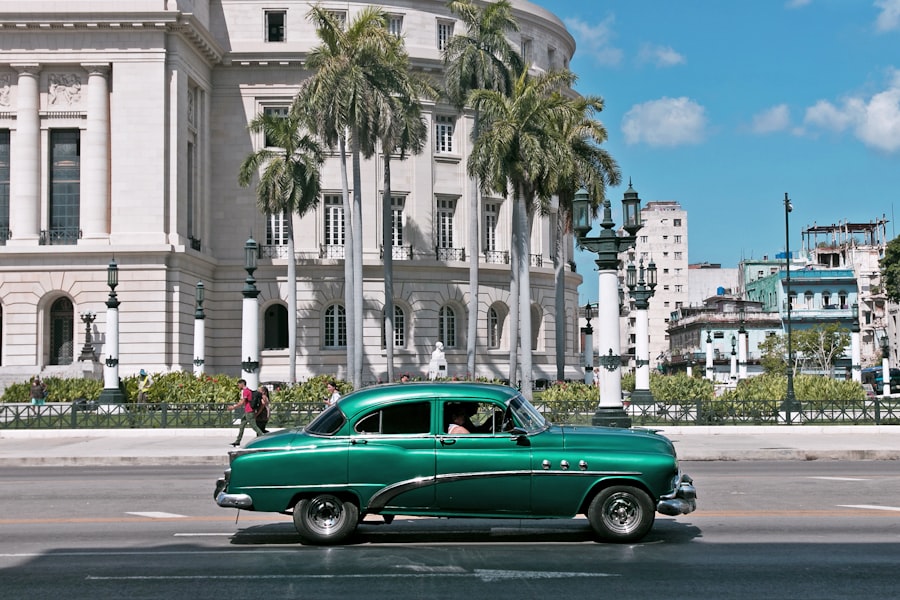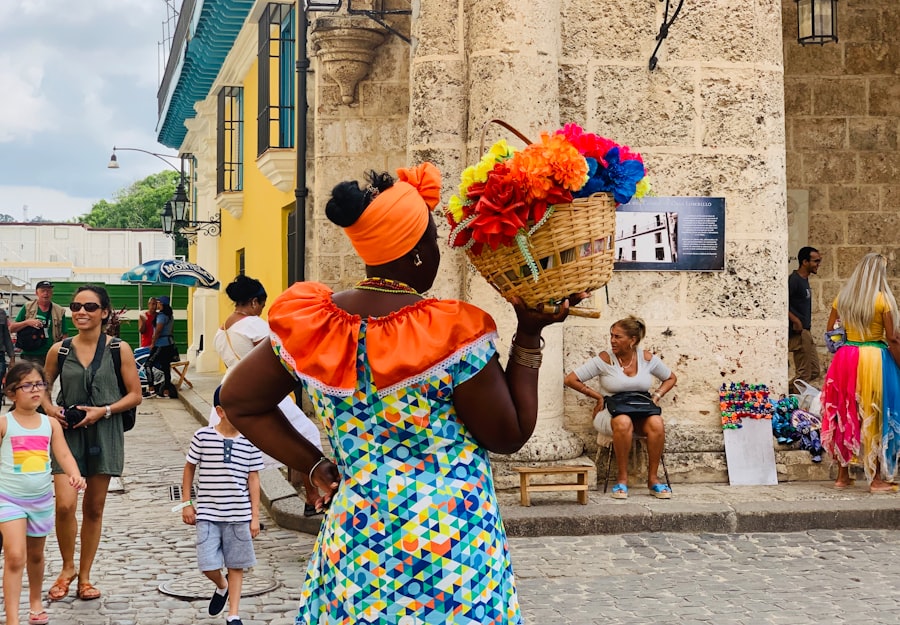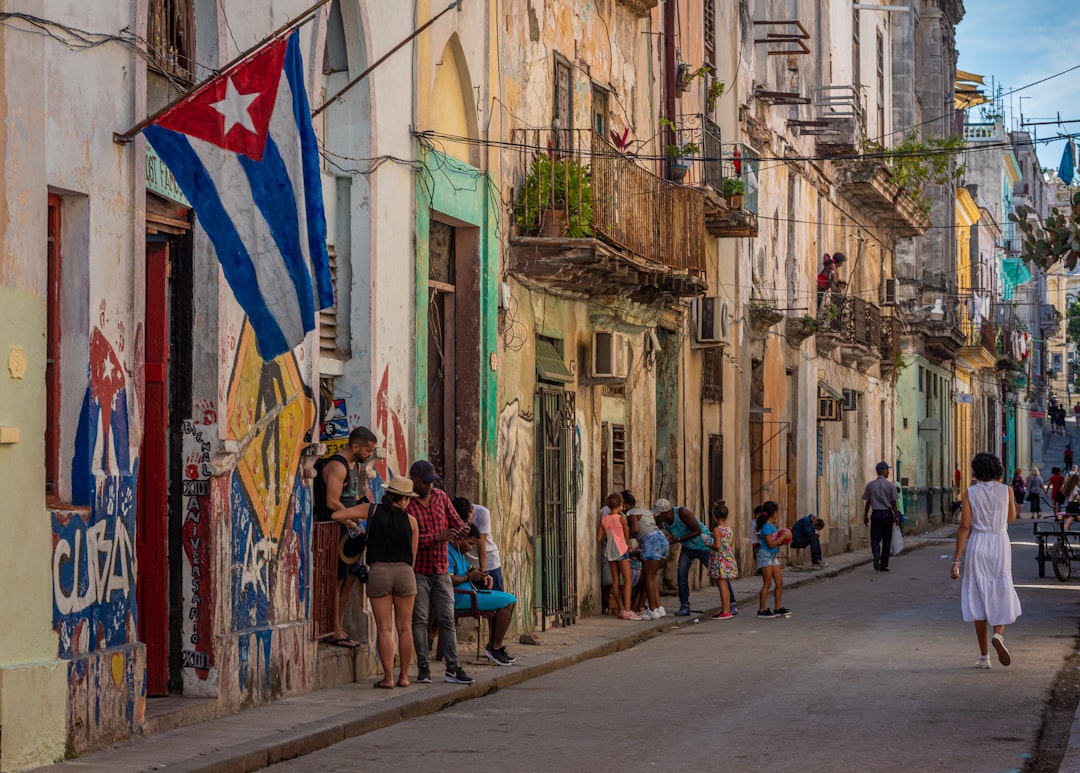The origins of the plot to blame Cuba for global unrest can be traced back to a confluence of geopolitical tensions and historical animosities. In the wake of various global crises, certain nations found it convenient to redirect public scrutiny towards Cuba, a country long viewed as an ideological adversary by many in the West. The narrative began to take shape as political leaders sought to consolidate their power by creating a common enemy.
By framing Cuba as a destabilizing force, these leaders aimed to rally domestic support and distract from their own governance challenges. This strategy was not merely opportunistic; it was rooted in decades of Cold War rhetoric that painted Cuba as a rogue state, thus making it an easy target for blame. As protests erupted in various parts of the world, the idea that Cuba was somehow orchestrating or exacerbating these movements gained traction among certain political factions.
This narrative was bolstered by a series of events that seemed to align with Cuba’s historical role in supporting revolutionary movements across Latin America and beyond. The notion that Cuba could be behind global unrest served to simplify complex socio-political issues, allowing those in power to manipulate public perception and maintain control over the narrative. In this context, the plot emerged not just as a means of scapegoating but as a calculated strategy to reshape international discourse.
Key Takeaways
- The idea to blame Cuba for global unrest originated from a group of influential individuals seeking to advance their own political and economic agendas.
- Key players in the secret plot include high-ranking government officials, powerful business leaders, and influential media figures, all motivated by a desire to undermine Cuba’s reputation and influence.
- Propaganda tactics such as spreading false information, creating fake news stories, and using social media manipulation are being employed to perpetuate the false narrative about Cuba’s involvement in global unrest.
- The media is being manipulated through the dissemination of biased and misleading information to shape public opinion and further the agenda of blaming Cuba for global unrest.
- The false narrative about Cuba is impacting global relations and policies, leading to strained diplomatic relations and potential economic sanctions against Cuba.
- Efforts are being made to uncover the truth and reveal the true instigators of global unrest, including independent investigations and whistleblowers coming forward with evidence.
- The Cuban government is addressing the false accusations by presenting evidence to refute the claims and engaging in diplomatic efforts to defend its reputation on the international stage.
- The historical relationship between Cuba and other countries, including past conflicts and political tensions, may be influencing the plot to blame Cuba for global unrest.
- The potential consequences of the false narrative about Cuba include damaging Cuba’s economy, escalating international tensions, and undermining trust in media and political institutions.
- Lessons can be learned from the secret plot to blame Cuba, including the need for transparency, accountability, and critical thinking to prevent similar situations in the future.
- Steps can be taken to address the damage caused by the false accusations against Cuba, including international investigations, public awareness campaigns, and diplomatic efforts to repair relations and prevent future plots of this nature.
Key Players: Who is involved in the secret plot and what are their motivations
The secret plot to blame Cuba for global unrest involves a diverse array of key players, each with their own motivations and agendas. At the forefront are political leaders from countries that have historically opposed Cuba, particularly those in the United States and parts of Latin America. These leaders often view Cuba as a symbol of defiance against Western hegemony and seek to undermine its influence in the region.
Their motivations are multifaceted, ranging from a desire to maintain political power domestically to a broader goal of promoting neoliberal policies that contradict Cuba’s socialist principles. In addition to political figures, intelligence agencies and think tanks play a crucial role in perpetuating the narrative against Cuba. These organizations often conduct research and disseminate reports that frame Cuba as a destabilizing force, thereby providing a veneer of legitimacy to the accusations.
Furthermore, non-state actors, such as dissident groups and media outlets with ties to these political entities, contribute to the narrative by amplifying claims of Cuban involvement in global unrest, often without substantial evidence.
Propaganda Tactics: The methods being used to spread the false narrative about Cuba’s involvement in global unrest

The methods employed to spread the false narrative about Cuba’s involvement in global unrest are varied and sophisticated. One prominent tactic is the use of social media platforms to disseminate disinformation rapidly. Coordinated campaigns often utilize bots and fake accounts to amplify misleading narratives, creating an illusion of widespread consensus regarding Cuba’s alleged culpability.
This digital strategy allows for the rapid spread of propaganda, reaching audiences far beyond traditional media channels and making it difficult for counter-narratives to gain traction. In addition to social media manipulation, traditional media outlets have also been co-opted into this propaganda effort. Sensationalist reporting often highlights isolated incidents or unverified claims linking Cuba to unrest without providing context or acknowledging the complexities of the situations at hand.
This selective reporting serves to reinforce existing biases against Cuba and perpetuates a simplistic understanding of global issues. Furthermore, documentaries and films that portray Cuba in a negative light contribute to shaping public perception, often relying on anecdotal evidence rather than comprehensive analysis.
The Role of Media: How the media is being manipulated to further the agenda of blaming Cuba
| Media Outlet | Manipulative Tactics | Agenda |
|---|---|---|
| Fox News | Sensationalized headlines, selective reporting | To blame Cuba for economic and social issues |
| CNN | Biased panel discussions, framing narratives | To portray Cuba as a threat to regional stability |
| The New York Times | Opinion pieces with one-sided arguments | To demonize the Cuban government |
The media plays a pivotal role in shaping public perception and discourse surrounding international events, and in this case, it has been manipulated to further the agenda of blaming Cuba for global unrest. Major news outlets, influenced by political pressures and financial interests, often prioritize sensational stories that align with prevailing narratives. This results in a disproportionate focus on negative portrayals of Cuba while downplaying or ignoring evidence that contradicts these narratives.
The reliance on expert opinions from individuals with clear biases against Cuba further skews coverage, creating an echo chamber that reinforces the false narrative. Moreover, the phenomenon of “churnalism,” where journalists rely heavily on pre-packaged information from government sources or think tanks without conducting thorough investigations, exacerbates the issue. This practice leads to the uncritical dissemination of information that paints Cuba as a villain in global affairs.
As a result, audiences are left with a skewed understanding of events, often viewing Cuba through a lens of suspicion and hostility. The media’s role in this manipulation is not merely passive; it actively shapes public opinion and influences policy decisions based on incomplete or misleading information.
International Implications: How the false narrative about Cuba is impacting global relations and policies
The false narrative about Cuba’s involvement in global unrest has significant international implications that extend beyond mere rhetoric. Countries that align themselves with the anti-Cuban narrative may find themselves adopting policies that isolate Cuba diplomatically and economically.
As countries rally around this narrative, they may also engage in collective actions that undermine regional stability, creating an environment ripe for conflict rather than cooperation. Additionally, the perpetuation of this false narrative can strain relationships between nations that have historically maintained diplomatic ties with Cuba. Countries in Latin America, for instance, may feel pressured to distance themselves from Cuba to align with U.S.
interests or avoid backlash from their own populations influenced by anti-Cuban sentiment. This shift can disrupt regional alliances and hinder collaborative efforts on pressing issues such as climate change, migration, and economic development. Ultimately, the impact of this narrative extends far beyond Cuba itself, affecting global relations and policies in profound ways.
Uncovering the Truth: Efforts being made to expose the secret plot and reveal the true instigators of global unrest

Efforts to uncover the truth behind the secret plot to blame Cuba for global unrest are gaining momentum as activists, journalists, and scholars work tirelessly to expose the underlying motivations and instigators behind this narrative. Investigative journalism plays a crucial role in this endeavor, with reporters delving into the sources of disinformation and revealing connections between political actors and media outlets that perpetuate false claims about Cuba. By highlighting inconsistencies and providing context, these efforts aim to dismantle the simplistic narratives that have taken hold.
In addition to journalistic efforts, grassroots movements within Cuba and among its supporters abroad are mobilizing to counteract negative portrayals and advocate for a more nuanced understanding of the country’s role in global affairs. These movements often leverage social media platforms to share personal stories and experiences that challenge prevailing narratives. By amplifying voices from within Cuba and showcasing its contributions to international solidarity efforts, they seek to reclaim agency over how Cuba is represented on the world stage.
Cuba’s Response: How the Cuban government is addressing the false accusations and defending its reputation
In response to the barrage of false accusations regarding its involvement in global unrest, the Cuban government has adopted a multifaceted approach aimed at defending its reputation and countering disinformation campaigns. Diplomatic efforts have been intensified, with Cuban officials engaging with international organizations and foreign governments to clarify their position and present evidence refuting claims against them. By fostering dialogue and collaboration with sympathetic nations, Cuba seeks to build alliances that can help counteract negative narratives.
Moreover, the Cuban government has invested in domestic communication strategies designed to inform its citizens about external threats and disinformation tactics targeting the nation. Educational campaigns aim to raise awareness about media manipulation and encourage critical thinking among Cubans regarding foreign narratives. By empowering its population with knowledge about these tactics, the government hopes to foster resilience against external attempts to undermine national sovereignty.
Historical Context: The historical relationship between Cuba and other countries that may be influencing the plot to blame Cuba for global unrest
Understanding the historical context surrounding Cuba’s relationships with other countries is essential for grasping why it has become a focal point for blame regarding global unrest. The legacy of U.S.-Cuba relations is particularly significant; decades of hostility following the Cuban Revolution have created an environment where any dissent or instability can be attributed to Cuban influence. This historical animosity has been perpetuated through various administrations in the U.S., each seeking to maintain a narrative that positions Cuba as an adversary.
Additionally, Cuba’s historical support for revolutionary movements across Latin America has left it vulnerable to accusations of meddling in other nations’ affairs. While these actions were often framed as solidarity efforts during periods of struggle against imperialism, they have been reinterpreted by opponents as evidence of Cuba’s desire for regional destabilization. This historical lens complicates contemporary perceptions of Cuba’s role in global affairs and underscores how past actions continue to shape current narratives.
Potential Consequences: The potential fallout from the false narrative about Cuba and its impact on international affairs
The potential fallout from the false narrative about Cuba is far-reaching and could have dire consequences for international affairs. As countries adopt increasingly hostile stances towards Cuba based on unfounded claims, diplomatic relations may deteriorate further, leading to isolation for Havana on the world stage. This isolation could hinder cooperation on critical issues such as public health, climate change, and migration management—areas where collaboration is essential for addressing shared challenges.
Moreover, if left unchallenged, this narrative could embolden extremist factions within countries that feel justified in taking aggressive actions against perceived threats from Cuba. Such actions could escalate tensions not only between nations but also within regions already grappling with instability. The potential for conflict increases when misinformation drives policy decisions rather than informed analysis based on facts.
Lessons Learned: What can be learned from the secret plot to blame Cuba for global unrest and how to prevent similar situations in the future
The unfolding situation surrounding the plot to blame Cuba offers several critical lessons about information warfare and its implications for international relations. One key takeaway is the importance of media literacy among citizens; understanding how narratives are constructed can empower individuals to critically evaluate information rather than accept it at face value. Promoting education around disinformation tactics can help build resilience against manipulation by state actors or interest groups seeking to shape public opinion.
Additionally, fostering open dialogue between nations is essential for preventing misunderstandings that can lead to conflict. Diplomatic channels should remain open even amid tensions; engaging in constructive conversations can help clarify intentions and reduce reliance on harmful stereotypes or narratives. By prioritizing communication over confrontation, countries can work towards more peaceful resolutions rather than succumbing to cycles of blame.
Moving Forward: What steps can be taken to address the damage caused by the false accusations against Cuba and prevent future plots of this nature
Addressing the damage caused by false accusations against Cuba requires concerted efforts at multiple levels—diplomatic, educational, and grassroots advocacy. On an international scale, countries must commit themselves to fact-based diplomacy that prioritizes truth over political expediency. Establishing independent commissions or forums where allegations can be examined transparently may help restore trust among nations while holding accountable those who propagate disinformation.
At an educational level, initiatives aimed at enhancing media literacy should be prioritized globally; equipping individuals with tools necessary for discerning credible information from propaganda will empower them against manipulation efforts. Furthermore, grassroots movements advocating for justice and truth must be supported; amplifying voices from marginalized communities can help counteract dominant narratives while fostering solidarity across borders. In conclusion, while challenges remain significant regarding how narratives surrounding countries like Cuba are constructed and disseminated globally, proactive measures can pave pathways toward understanding rather than division—ultimately fostering a more just world order based on mutual respect rather than scapegoating.
In exploring the intricate narratives surrounding geopolitical tensions, “The Secret Plot to Blame Cuba” delves into the clandestine operations and political maneuvers that have shaped international relations. For those interested in further understanding the historical context and broader implications of such covert activities, an insightful article can be found on the Hey Did You Know This website. This piece provides additional perspectives and details that complement the themes discussed in the original article. To read more, visit this related article.
FAQs
What is the secret plot to blame Cuba?
The secret plot to blame Cuba refers to a covert operation or conspiracy to falsely attribute certain events or actions to the Cuban government or its agents.
What are some examples of the secret plot to blame Cuba?
Examples of the secret plot to blame Cuba include false accusations of involvement in terrorist activities, drug trafficking, or other illicit activities without sufficient evidence.
Who might be involved in the secret plot to blame Cuba?
Those involved in the secret plot to blame Cuba could include individuals, organizations, or even government agencies seeking to advance their own agendas by falsely implicating Cuba in certain events.
What are the potential consequences of the secret plot to blame Cuba?
The potential consequences of the secret plot to blame Cuba could include damaging Cuba’s international reputation, straining diplomatic relations, and creating a pretext for hostile actions against the country.
How can the secret plot to blame Cuba be countered?
The secret plot to blame Cuba can be countered by promoting transparency, demanding credible evidence for any accusations, and engaging in open dialogue to address any concerns or disputes.
